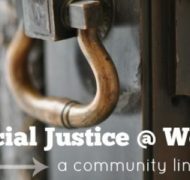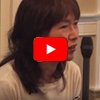Social Justice: Four Reasons to Pursue Change
Blog / Produced by The High Calling
For most of us, the idea of justice seems like something from a comic book. Superheroes in colored tights battling power hungry villains. Or maybe we look to our government for justice. Honorable people in black robes at the Supreme Court ruling on the laws of the land.
Increasingly, the International Justice Mission (IJM) is helping us think more deeply about issues of justice in the world. Much of their work has focused on ending human trafficking, though they officially operate to “rescue victims of individual human rights abuse.” A friend of mine works for IJM and told me the story of rescuing several women from forced prostitution in the east. One of the women said, “Why didn’t you come sooner?”
That is a good question for all of us. For many people, the massive challenge of international injustice is simply too big for our small brains to handle. If we seek justice at all, we do so in our local communities, serving on juries, serving the homeless and the poor, serving our own tribe.
And this is a good thing. We must root out injustice in our own neighborhoods.
But as Christians, we have been called into the whole world. If violence is keeping 1.5 billion people in poverty, we cannot content ourselves with reliable rule of law in our own schools and communities and law enforcement. We must be willing to look beyond ourselves to the whole world.
It is no wonder we prefer justice to look like a big white columned building in our capital city, or a colorful, fantastical fistfight in the pages of a comic book. International justice is too big for any of us. It is too big, even, for all of us. But it is not too big for God. He has made his views of justice abundantly clear.
Consider these four verses and reflections from Mark D. Roberts, author of the daily reflections on The High Calling:
The important people of the land have practiced extortion and have committed robbery. They’ve oppressed the poor and mistreated the immigrant. They’ve oppressed and denied justice. (Ezekiel 22:29)
In response to this passage, Mark D. Roberts asks, “Are we treating the people in our spheres of influence with justice? If we employ or manage people, do we seek their well-being, or do we use them exclusively for our own benefit? Do we take advantage of those who are powerless in our society? Or do we use our power to lift them up? Are we seeking God’s kingdom and justice in every area of our lives?”
“God blesses those who hunger and thirst for justice, for they will be satisfied.” (Matt. 5:6)
In response to this passage, Mark D. Roberts asks, “What does it mean to hunger and thirst for justice? The Greek word translated here as “justice” is dikaiosune, a term that refers to personal righteousness as well as to social justice. Those who hunger and thirst for dikaiosune have a deep yearning for things to be right in their individual lives and in society. This will happen when God’s kingdom comes completely and creation is restored to his original intention.”
In your majesty, ride out to victory, defending truth, humility, and justice. Go forth to perform awe-inspiring deeds! (Ps. 45:4)
“As people of justice,” writes Mark D. Roberts, “we will treat all people fairly and will work for a world that offers justice to all. We will be especially committed to doing justice for the poor and powerless. Where we have been given authority, in our work, our families, our churches, or our community, we will strive for just systems that reflect the character of God.
Give justice to the poor and the orphan; uphold the rights of the oppressed and the destitute. (Ps. 82:3)
“God is especially concerned,” writes Mark D. Roberts, “that those who are powerless in society receive justice. These are the ones who are most easily forgotten or abused. Yet God instructs us to pay special attention to them. This reflects his own compassion and love for the poor, the orphan, and the foreigner (for example, Deut. 10:17-18; Ps. 146:7-9). When we seek justice for those who are weak and marginalized, we not only obey God, but also imitate God.”
This post first appeared at Patheos.





